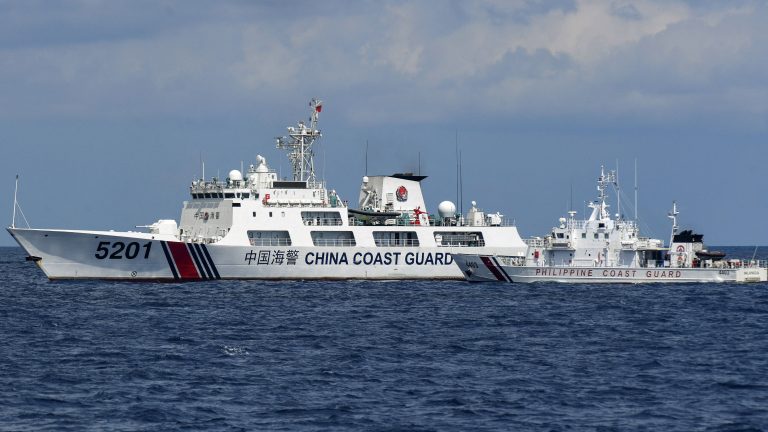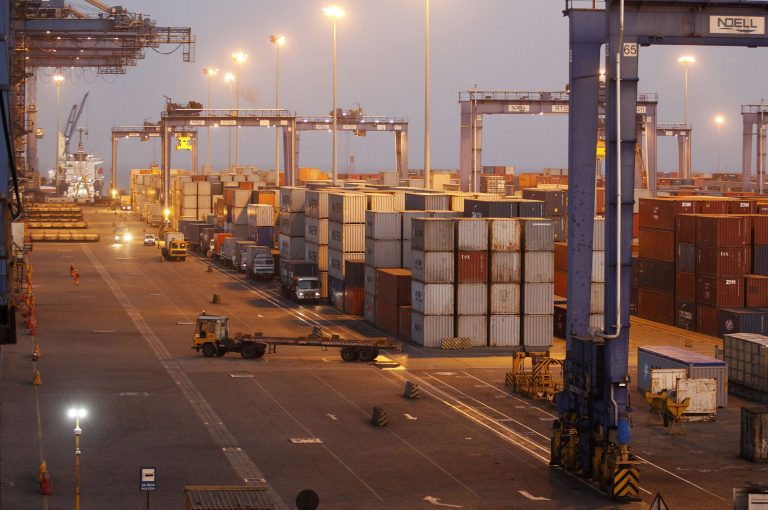On Aug. 25, the Philippines and Australia agreed to hold joint patrols in the South China Sea. In the face of China’s growing aggression in the area, the two nations have joined forces to secure sea lanes and oppose communist China.
The defense chiefs of both countries agreed that having “coordinated patrols” would secure crucial sea lanes and “other areas of mutual interest.”
“We committed to expanding some of our bilateral activities in the future to include other countries committed to sustaining peace and security in our region,” Defense Secretaries Gilberto Teodoro Jr of the Philippines and Richard Marles of Australia both said in a joint statement.
The two secretaries also agreed to raise the country’s defense partnership, as well as to allow Australia to host the Philippines in an inaugural meeting next year.
“We share a firm commitment to a peaceful, stable and prosperous region where all countries are free to exercise their sovereignty consistent with international law,” they said.
Success
You are now signed up for our newsletter
Success
Check your email to complete sign up
The Philippines have already planned to hold joint patrols with the U.S. this year, Radio Free Asia (RFA) wrote. The country participated in a naval exercise with its two allies and Japan, in the hopes of promoting “collaboration toward the realization of a free and open Indo-Pacific,” Kyodo News reported.
Joint patrols have been a goal for President Ferdinand Marcos Jr. since he took office last year.
On Aug. 25, he attended amphibious exercises in the town of San Antonio, located in the northern Zambales province, where the U.S. and the Philippines both held joint exercises in April.
The president said he would continue to discuss the exercises with Australian Prime Minister Anthony Albanese when the latter comes to visit the country in early September. Marcos also said that both sides would need to formulate new “strategies, ideas and agreements” to bolster their partnership following the success of their “very well-run exercise.”
Exercise Alon 2023, the first amphibious exercise between Filipino and Australian troops, began in Darwin, Australia, on Aug. 14 and ended on Aug. 31. It involved 700 Filipino and 1,200 Australian troops, with 150 U.S. Marines playing a support role, officials said.
“It is an important aspect of how we prepare for any eventuality and considering that there have been so many events that attest to the volatility of the region,” Marcos said as he inspected several military exercises between Australian and Filipino troops.
“But this mission is just a manifestation of where we want our defense and bilateral relations to be and it is close to coming from a comprehensive partnership to a strategic one,” Teodoro said, emphasizing the need for the drills for the “national securities of both our countries.”
Marles also said that the first joint patrols of the South China Sea would commence after the drills were done, adding that China’s claim to the region was invalidated by a 2016 ruling by an arbitration tribunal in The Hague under the United Nations (UN) convention on the Law of the Sea, al-Jazeera reported.
READ MORE:
- China’s ‘Panda Diplomacy’ in Retreat, Signaling Further Deterioration in Sino-US Relations
- Chinese Cities Were Intentionally Flooded to Protect Beijing and Xi’s ‘Xiong’an New Area’
- Xi Jinping Emerges After Noticeable Absence While China Was Plagued By Natural Disasters
Delving into dangerous waters
The Chinese Communist Party (CCP) issued a “standard” national map on Aug. 28, staking claim to most of the South China Sea, in addition to contested areas in India and Russia.
The bold move struck a chord with many nations, including several Southeast Asian nations like Indonesia, Vietnam, Malaysia, Brunei and the Philippines. Beijing has yet to resolve its border disputes with India, with the former arguing that China has “no basis,” AP News wrote.
Malaysia also rejected China’s “unilateral claims” and that the map is “not binding” to the country. Its protest was followed by Vietnam, Taiwan, Indonesia and the Philippines. Vietnam also has a claim over the Paracel and Spratly islands, saying that China is violating the UN Convention on the Law of the Sea.
Despite the inclusion of Russian lands, Moscow has not responded. China remains supportive of Russia’s aggression against Ukraine.
“We hope that the relevant sides can see it in an objective and rational way,” Chinese Foreign Ministry spokesperson Wang Wenbin said.







